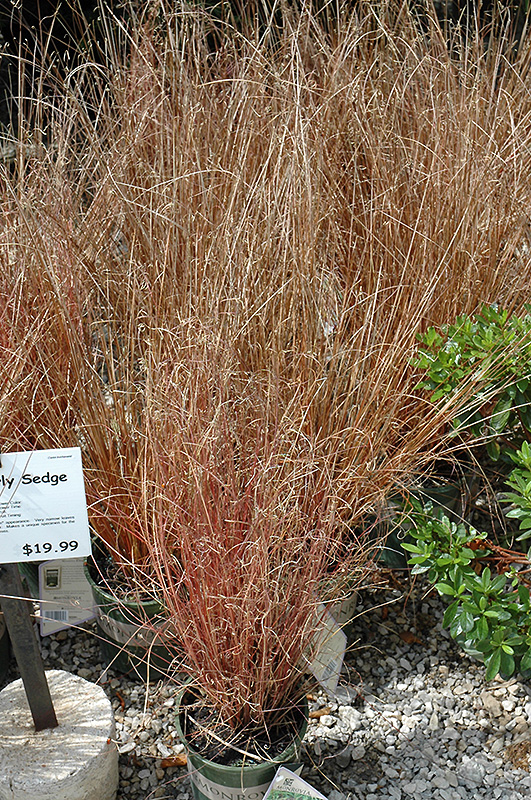Plant Finder
Height: 24 inches
Spread: 18 inches
Sunlight:
![]()
![]()
Hardiness Zone: 5
Other Names: Hair Sedge
Description:
Grown for delicate ornamental copper-bronze colored foliage carried all season long; great in a moist border in shade or sun, does not like to dry out
Ornamental Features
Leatherleaf Sedge is primarily valued in the garden for its cascading habit of growth. Its attractive grassy leaves are coppery-bronze in color. The foliage often turns brown in fall.
Landscape Attributes
Leatherleaf Sedge is an herbaceous evergreen perennial grass with a shapely form and gracefully arching stems. It brings an extremely fine and delicate texture to the garden composition and should be used to full effect.
This is a relatively low maintenance plant, and is best cleaned up in early spring before it resumes active growth for the season. It has no significant negative characteristics.
Leatherleaf Sedge is recommended for the following landscape applications;
- Mass Planting
- Border Edging
- General Garden Use
- Groundcover
- Naturalizing And Woodland Gardens
- Container Planting
Planting & Growing
Leatherleaf Sedge will grow to be about 24 inches tall at maturity, with a spread of 18 inches. Its foliage tends to remain dense right to the ground, not requiring facer plants in front. It grows at a medium rate, and under ideal conditions can be expected to live for approximately 7 years. As an evegreen perennial, this plant will typically keep its form and foliage year-round.
This plant does best in full sun to partial shade. It does best in average to evenly moist conditions, but will not tolerate standing water. It is not particular as to soil type or pH. It is somewhat tolerant of urban pollution. This species is not originally from North America. It can be propagated by division.
Leatherleaf Sedge is a fine choice for the garden, but it is also a good selection for planting in outdoor pots and containers. It can be used either as 'filler' or as a 'thriller' in the 'spiller-thriller-filler' container combination, depending on the height and form of the other plants used in the container planting. It is even sizeable enough that it can be grown alone in a suitable container. Note that when growing plants in outdoor containers and baskets, they may require more frequent waterings than they would in the yard or garden. Be aware that in our climate, most plants cannot be expected to survive the winter if left in containers outdoors, and this plant is no exception. Contact our experts for more information on how to protect it over the winter months.

